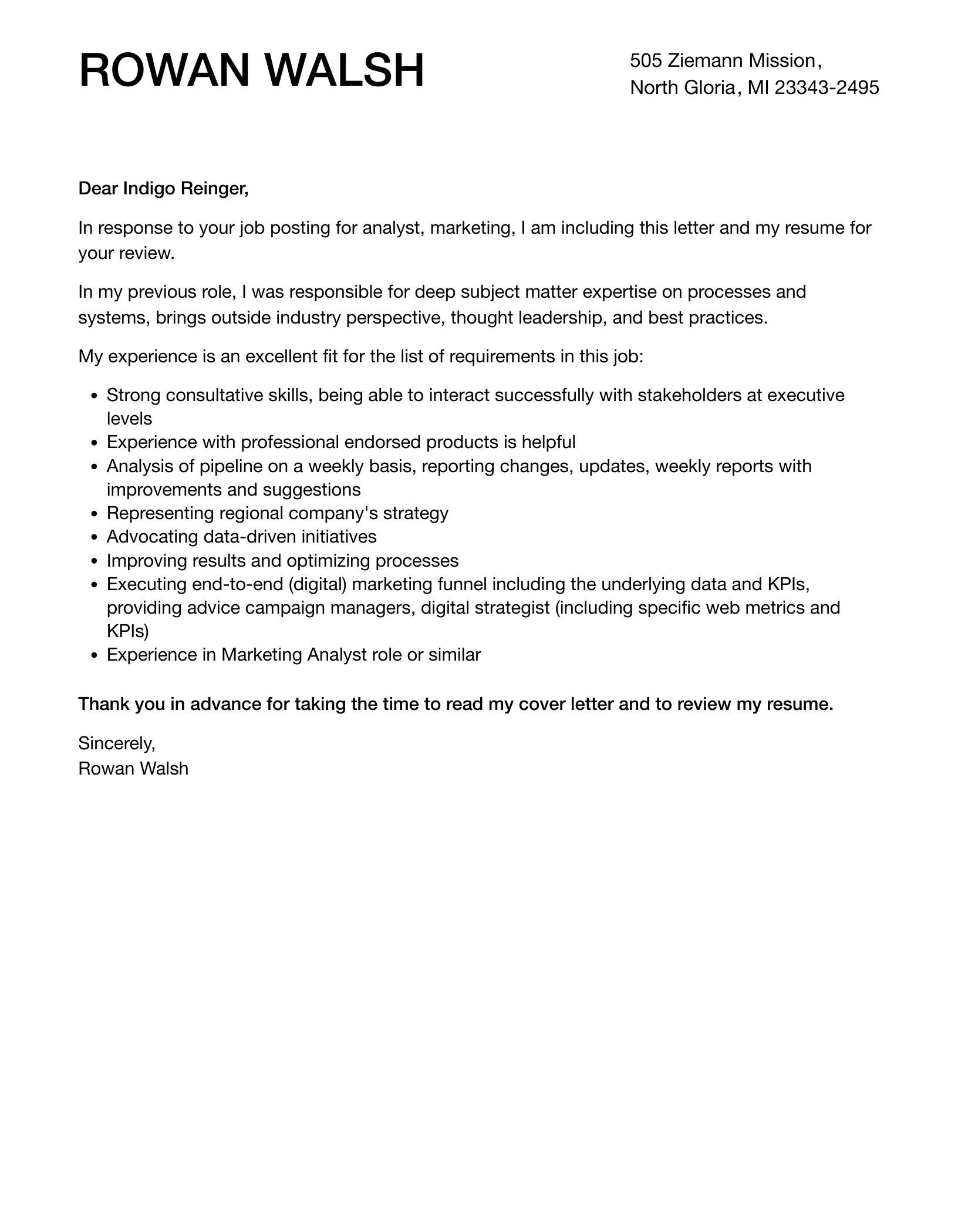Crafting a Cover Letter as a Marketing Analyst
As a marketing analyst, your cover letter is your first opportunity to make a lasting impression on a potential employer. It’s not just a formality; it’s a crucial tool that allows you to showcase your skills, experience, and personality in a way that your resume alone cannot. A well-crafted cover letter can significantly increase your chances of landing an interview. It should clearly communicate your understanding of the role, your enthusiasm for the company, and your ability to contribute to their marketing goals. Remember that the goal is to highlight how your skills align with the company’s needs and how you can bring value to their team. It is also very important to address the hiring manager by name.
Highlighting Your Analytical Skills
Marketing analysts are, at their core, data scientists. Your cover letter must immediately convey your analytical prowess. This means going beyond simply stating that you have analytical skills. Instead, provide concrete examples of how you’ve used these skills to achieve specific results. Demonstrate how you can collect, interpret, and analyze complex data sets. Highlight your proficiency in statistical analysis, data modeling, and the use of analytical tools to identify trends, insights, and opportunities. Make sure you address the specific requirements outlined in the job description, and align your skills with their needs. A strong analytical skill set is the cornerstone of successful marketing analysis, and a great cover letter will clearly demonstrate your abilities.
Quantifying Achievements with Data
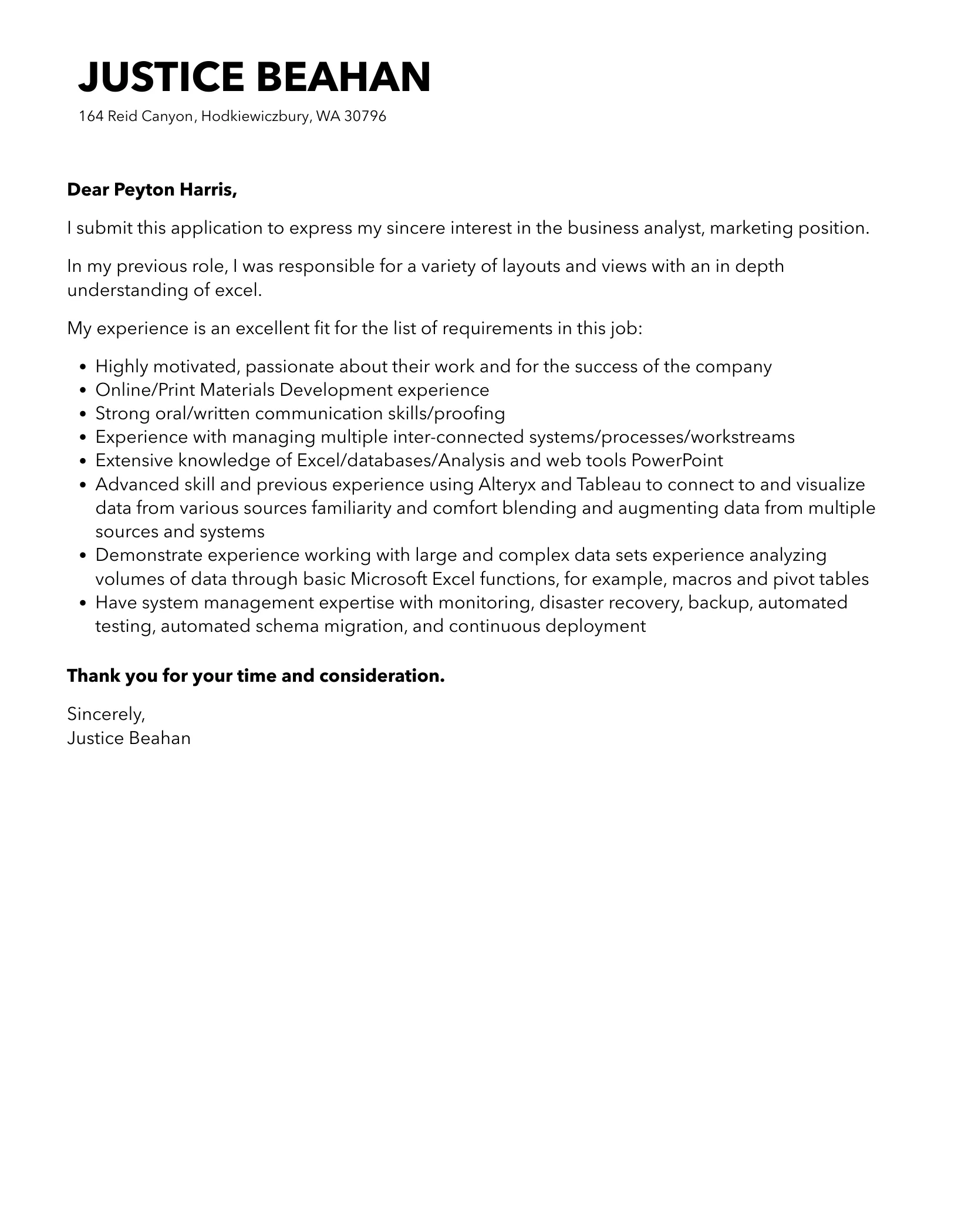
One of the most effective ways to impress a hiring manager is to quantify your achievements using data. Instead of vague statements like, “Improved marketing performance,” provide specific metrics that demonstrate your impact. For instance, you could say, “Increased website conversion rates by 15% through A/B testing of landing pages” or “Reduced customer acquisition costs by 10% by optimizing paid advertising campaigns.” Use numbers, percentages, and specific results to make your accomplishments tangible and credible. This approach not only shows your analytical skills, but also proves your ability to drive measurable results. When possible, use data from similar projects you have worked on to showcase your potential impact.
Showcasing Marketing Campaign Success
Marketing analysts often play a vital role in the success of marketing campaigns. Your cover letter should highlight your experience with campaign planning, execution, and analysis. Describe the types of campaigns you’ve worked on, such as digital marketing, social media marketing, or email marketing. Detail your responsibilities, including market research, target audience analysis, and campaign performance monitoring. Mention your experience with marketing automation tools and your ability to optimize campaigns for better results. Always emphasize the outcomes. For example, you could say, “Managed a social media campaign that increased brand awareness by 20% and generated a 10% increase in leads.” Use data to demonstrate the impact of your contributions and highlight your ability to drive positive results.
Demonstrating Proficiency in Marketing Tools
Marketing analysts are often expected to be proficient in a variety of marketing tools. Your cover letter should clearly list the tools you’re familiar with, such as Google Analytics, SEMrush, HubSpot, Marketo, or other relevant software. Go beyond simply listing the tools; mention how you’ve used them to solve business problems or achieve specific marketing goals. For example, you could say, “Used Google Analytics to analyze website traffic, identify areas for improvement, and optimize content for higher engagement.” If you have certifications or specialized training in any of these tools, be sure to mention them. Providing tangible examples of how you’ve leveraged these tools to generate positive results is the key to impressing a hiring manager.
Emphasizing Your Communication and Collaboration Skills
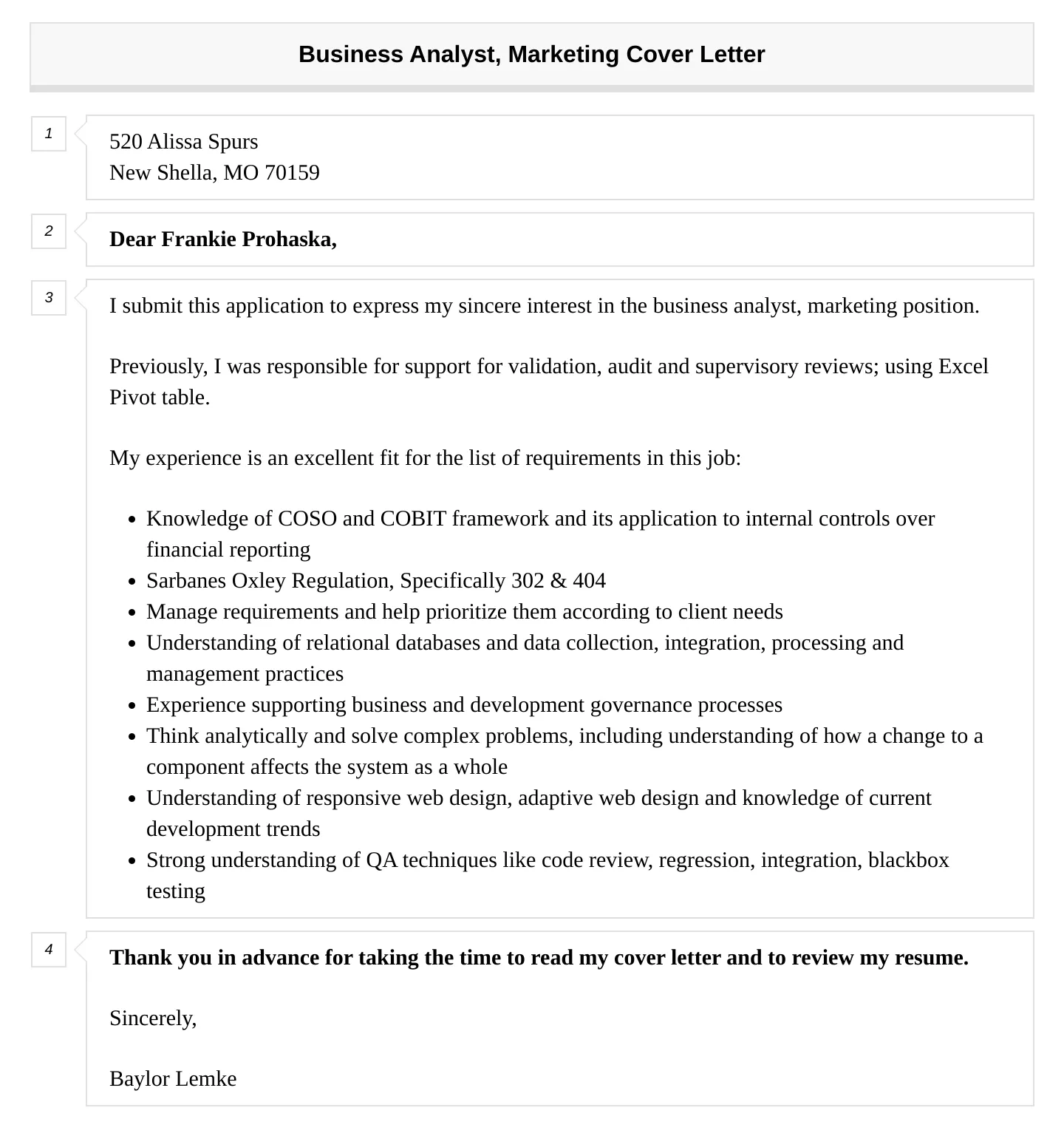
While marketing analysts rely heavily on data, strong communication and collaboration skills are also essential. Your cover letter should highlight your ability to effectively communicate complex data and insights to both technical and non-technical audiences. Mention your experience with creating reports, presentations, and dashboards that summarize key findings. Also, show your ability to work collaboratively with cross-functional teams, such as marketing, sales, and product development. Describe how you’ve used your communication and collaboration skills to influence decision-making, drive strategic initiatives, and achieve common goals. Emphasizing these skills demonstrates your ability to contribute effectively to a team environment.
Tailoring Your Cover Letter to the Job Description
One of the most significant steps in creating a great cover letter is tailoring it to each specific job description. Generic cover letters are easily identified and often overlooked. Take the time to carefully read the job posting and identify the key skills, qualifications, and experiences the employer is seeking. Then, customize your cover letter to specifically address these requirements. Use the same keywords and phrases that the employer uses in their job description. This shows that you understand the role and are a good fit for the company. This also makes it easier for the hiring manager to see that your skills align with their needs. This level of detail demonstrates your interest and attention to detail.
Researching the Company Culture and Values
Before you start writing your cover letter, take some time to research the company’s culture and values. Visit their website, read their blog, and check their social media presence. Learn about their mission, values, and recent initiatives. This will help you tailor your cover letter to align with the company’s specific needs and demonstrate your genuine interest in the organization. If the company emphasizes innovation, highlight your experience with innovative marketing strategies. If they value teamwork, emphasize your collaborative skills. Showing that you understand and appreciate their values can set you apart from other applicants.
Customizing Your Letter to Specific Requirements
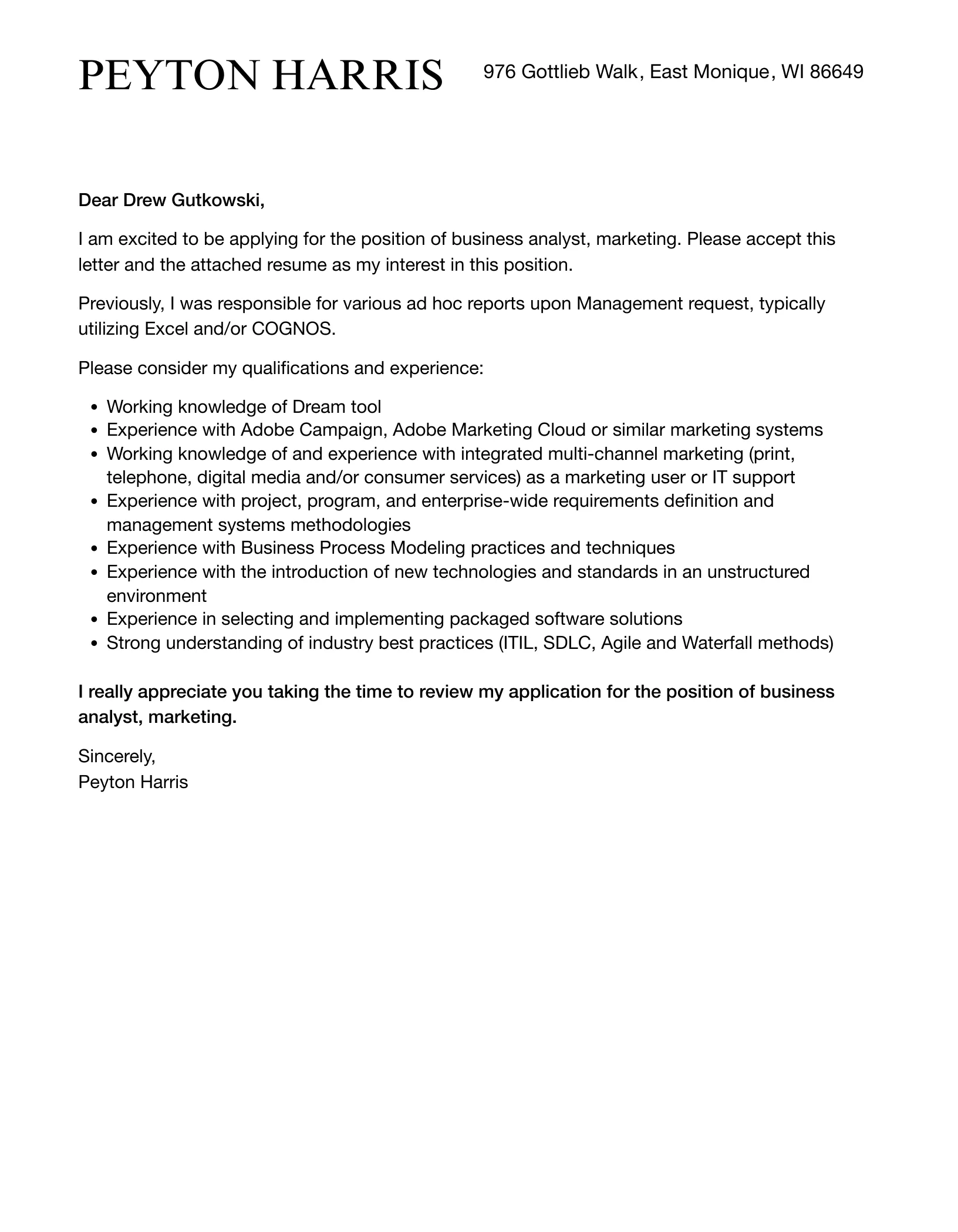
Once you understand the company’s culture and values, customize your cover letter to address the specific requirements outlined in the job description. Highlight the skills and experiences that are most relevant to the role. Use specific examples to illustrate how you’ve demonstrated these skills in the past. For instance, if the job description emphasizes experience with A/B testing, you can share a specific instance where your expertise increased conversion rates. When possible, quantify your achievements with data and metrics. By tailoring your letter to the specific requirements, you demonstrate that you have taken the time to understand the role and are the ideal candidate.
Highlighting Relevant Experience and Projects
Your cover letter should provide a concise overview of your relevant experience and projects. Focus on the accomplishments that are most relevant to the marketing analyst position. Instead of simply listing your past job titles and responsibilities, use the cover letter to showcase the projects you’ve worked on and the outcomes you achieved. Provide specific examples of your data analysis, marketing campaign management, and tool proficiency. Emphasize the results you generated, such as increased sales, improved customer engagement, or reduced costs. A compelling cover letter will clearly illustrate your qualifications and make the hiring manager want to learn more about you.
Showcasing Project Management Skills
Marketing analysts often manage projects, so highlighting your project management skills is crucial. Mention your experience with planning, organizing, and executing marketing initiatives. Detail your role in defining project goals, developing timelines, and managing budgets. Describe how you’ve used project management tools and techniques, such as Gantt charts or Agile methodologies, to keep projects on track. Provide examples of successful projects you’ve managed, highlighting the results achieved and your role in delivering those outcomes. Demonstrating your project management skills will show your ability to handle multiple responsibilities and deliver results effectively.
Mentioning Accomplishments and Results
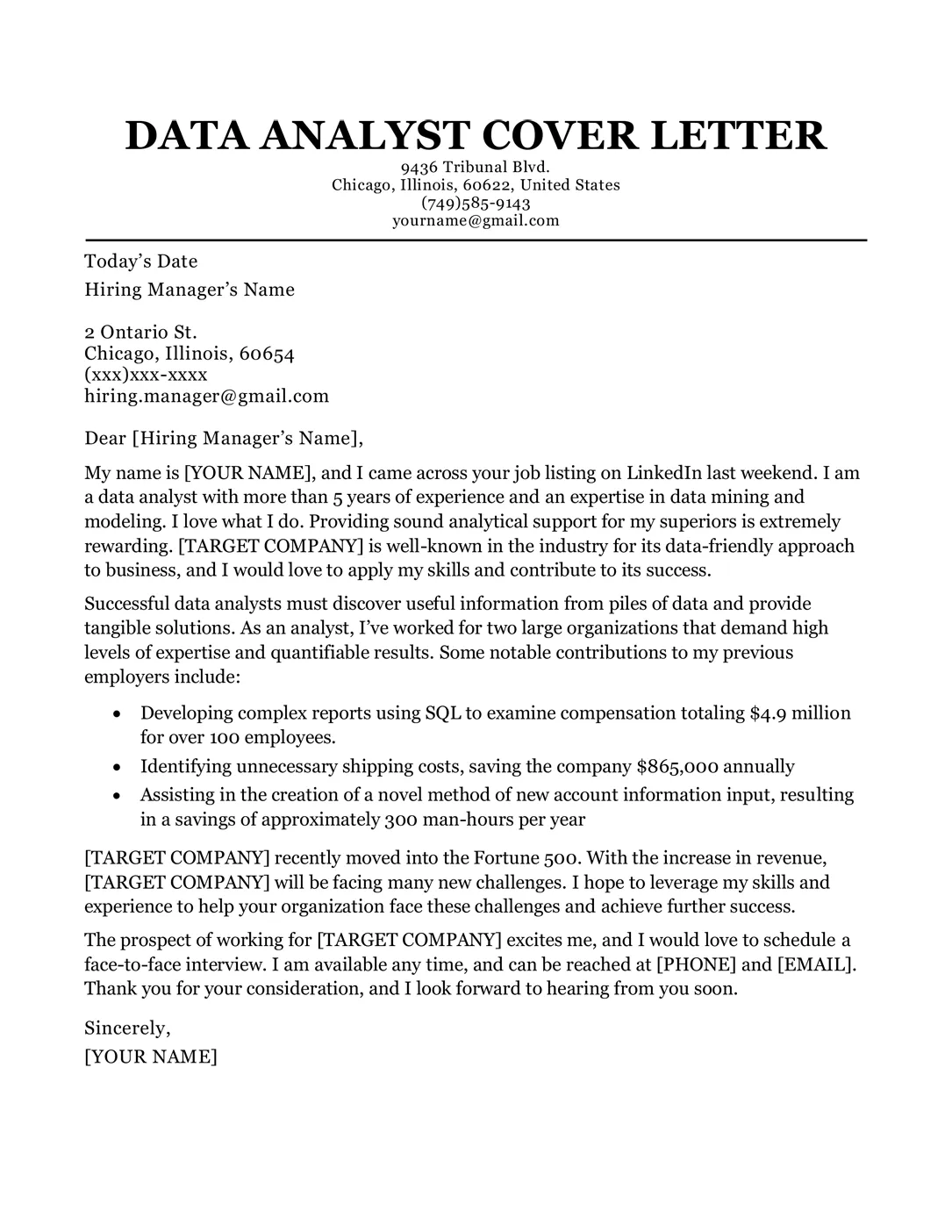
Your cover letter should focus on accomplishments and results. Instead of simply describing your job duties, highlight what you achieved in your previous roles. Provide specific examples of how you’ve contributed to the success of your previous employers. This could include increased revenue, improved brand awareness, or higher customer retention rates. Use numbers, percentages, and concrete data to make your accomplishments more credible and impactful. For instance, instead of saying, “Improved website traffic,” say, “Increased website traffic by 30% through SEO optimization.” Emphasizing your accomplishments is essential for demonstrating your value to the employer.
Emphasizing Relevant Technical Skills
Marketing analysts must possess a strong understanding of data analysis tools and technologies. Be sure to emphasize your relevant technical skills. Mention your proficiency in data visualization tools, such as Tableau or Power BI, and analytical software like Excel or SPSS. Include your experience with database management, SQL, and other relevant technologies. Tailor your skills to the requirements outlined in the job description, and provide examples of how you’ve used these skills to solve business problems and generate results. Emphasizing the relevant technical skills will show the hiring manager that you possess the skills necessary to succeed in the role.
Formatting and Proofreading Your Cover Letter
The formatting and proofreading of your cover letter are as important as the content itself. A well-formatted, error-free cover letter demonstrates your attention to detail and professionalism. Ensure that your letter is easy to read, well-organized, and free of any grammatical errors or typos. Poorly formatted cover letters and those with errors can reflect poorly on your skills and the message you are trying to convey. Take the time to ensure your cover letter is polished and professional to leave a positive impact on the hiring manager.
Formatting for Readability and Impact
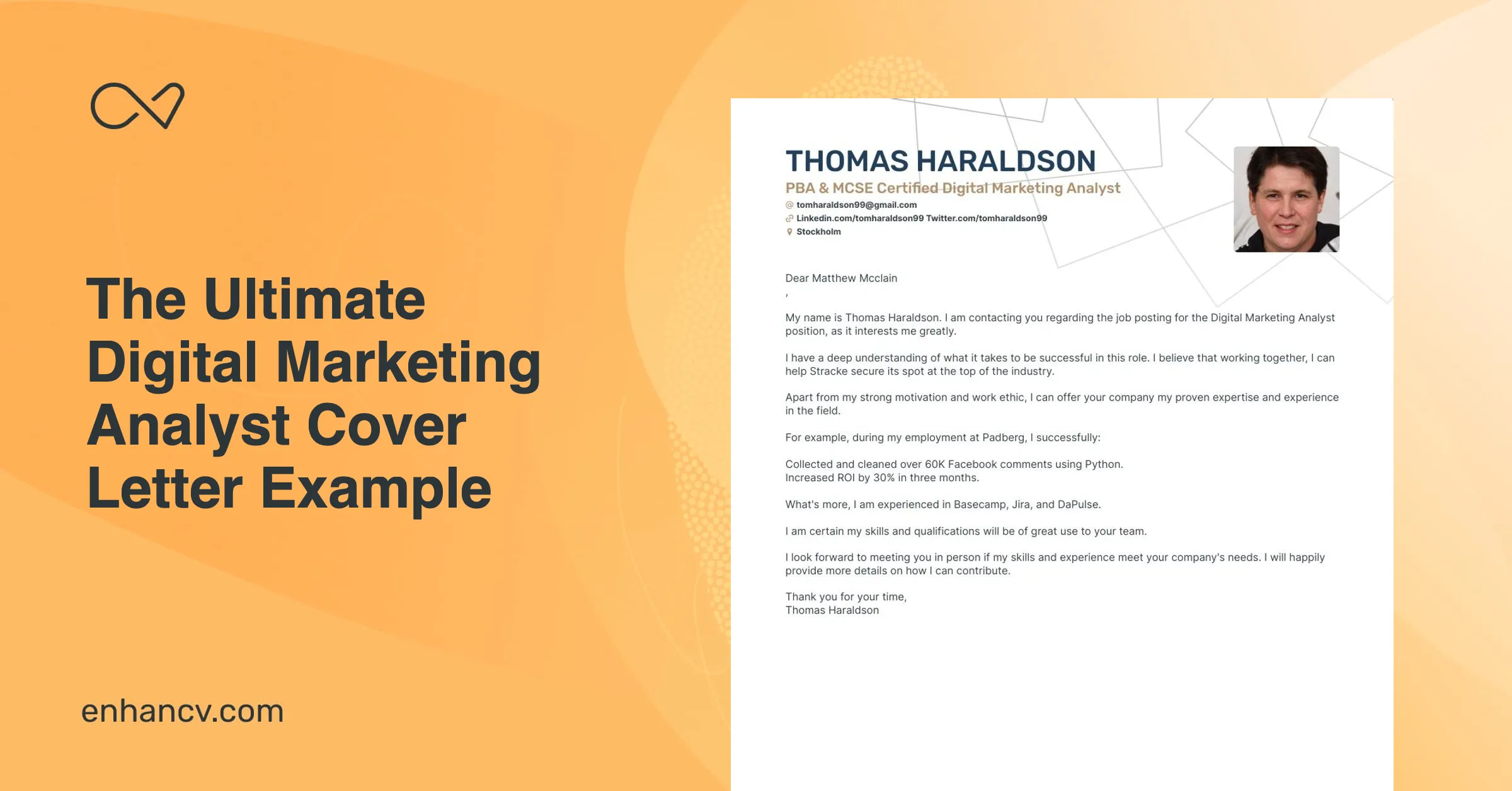
Your cover letter should be easy to read and visually appealing. Use a professional font like Arial, Calibri, or Times New Roman. Use a font size of 10-12 points to make your text easy to read. Use clear headings and subheadings to break up the text and guide the reader. Keep your paragraphs concise and focused. Use bullet points to highlight key achievements and skills. Ensure that your letter has a consistent layout and professional appearance. Well-formatted cover letters will make it easier for the hiring manager to quickly grasp your qualifications and skills.
Proofreading for Grammatical Errors and Typos
Proofreading your cover letter is one of the most critical steps in the writing process. Even a single typo or grammatical error can undermine your credibility. Carefully review your cover letter for any errors in spelling, grammar, punctuation, and sentence structure. Use a spell checker and grammar checker, but don’t rely solely on these tools. Have someone else review your letter for a fresh perspective, or read it aloud to catch any awkward phrasing or mistakes. A polished, error-free cover letter shows your attention to detail and professionalism and can make the difference between getting an interview and being passed over.
